This discussion and review contains spoilers for House of the Dragon episode 4, “King of the Narrow Sea,” on HBO.
The character of Rhaenyra Targaryen (Milly Alcock) is a compelling and complex protagonist, and one of the central tensions of House of the Dragon is the extent to which the show is willing to lean into the contradictions of such a character.
Rhaenyra is obviously a subject to the patriarchal culture of Westeros. Even after her father Viserys (Paddy Considine) named her as his heir, her ascent has never been assured. As Rhaenys (Eve Best), “the Queen Who Never Was,” warned her back in “The Rogue Prince,” “Men would sooner put the realm to the torch than see a woman ascend to the Iron Throne.” James Hibbard explained the show’s central theme: “The patriarchy would rather destroy itself than see a woman on the throne.”
It is easy to root for a character in these circumstances, and “King of the Narrow Sea” foregrounds the various indignities that Rhaenyra must suffer to pursue the crown. The episode opens with the princess enduring a tiresome round of would-be suitors at the Dragonstone. Later on, she witnesses the misogyny of a street performance that asks the citizenry of King’s Landing to laugh at the idea of a female ruler. Indeed, the plot of “King of the Narrow Sea” revolves largely around the loss of Rhaenyra’s virginity.
Game of Thrones spent considerable time exploring what it meant to be a woman in this medieval fantasy world, through characters like Daenerys Targaryen (Emilia Clarke), Cersei Lannister (Lena Headey), and Sansa Stark (Sophie Turner). The show was brutal, often criticized for its depictions of sexual violence against its female characters, but that brutality could be confrontational. Game of Thrones was always candid in deconstructing the nostalgic fantasy of the throwback worlds.
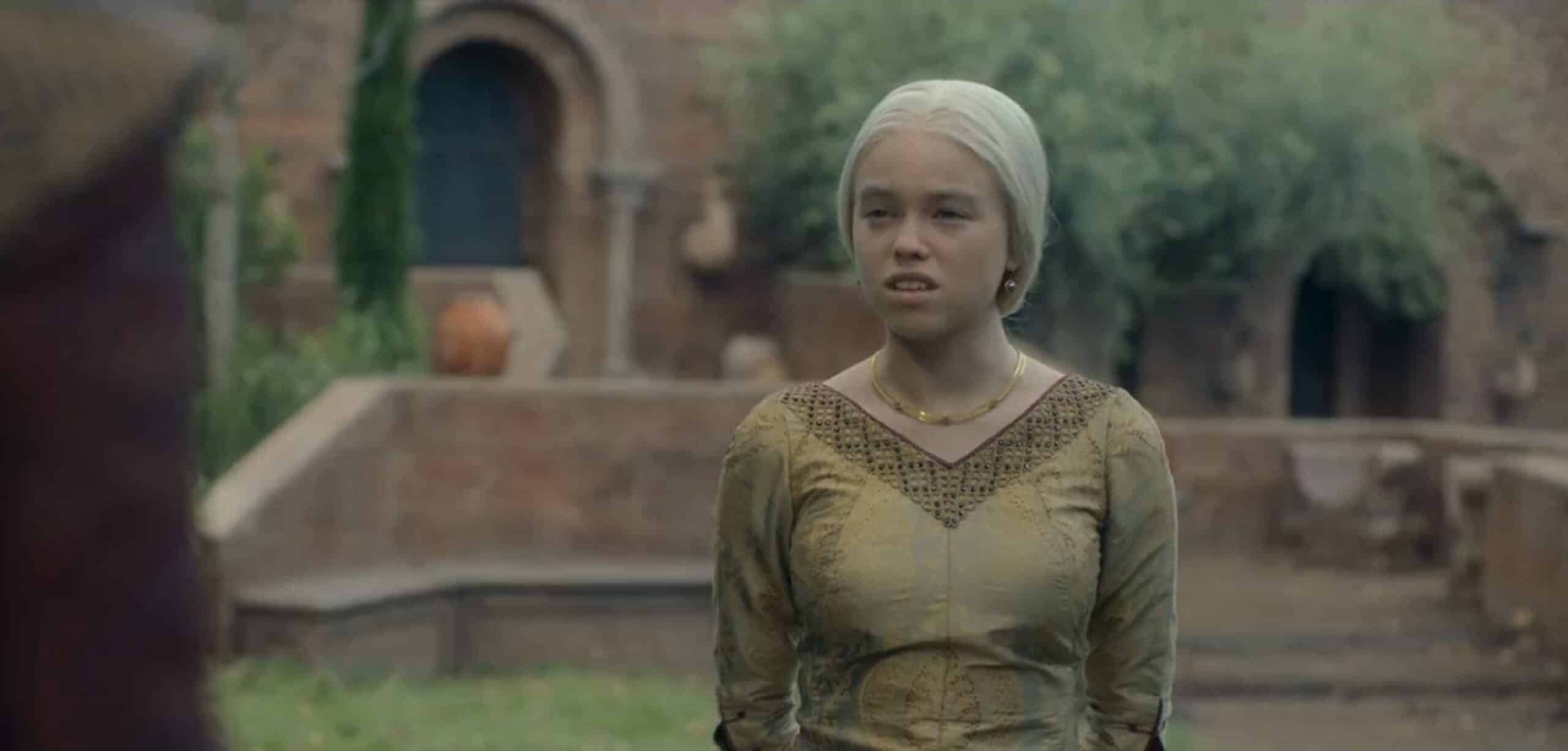
House of the Dragon is a lot more straightforward in its approach to the misogyny of its setting. There are strengths and weaknesses to this approach. House of the Dragon more directly foregrounds the lack of agency that female characters have in this world, particularly when they are largely treated as incubators for more viable male heirs. “The Heirs of the Dragon” literally contrasts the graphic brutality of a jousting tournament with the horrors of a medieval birth. This is clever and effective.
On the other hand, four episodes into House of the Dragon, the show is a lot less willing to implicate the viewer or the audience in any of this. Game of Thrones was a show that often seemed to punish the viewer for wanting what the series delivered, something that perhaps explains the antagonistic relationship that it could have with its audience. House of the Dragon is a lot less complicated in how it frames its narrative and positions its characters, a lot less eager to tolerate ambiguity.
This is apparent in how “King of the Narrow Sea” approaches its central plot point, the question of Rhaenyra’s “coupling,” “virtue,” and “carrying on.” In the source novel, Fire & Blood, there is a variety of competing accounts of events. Two of these accounts center on her uncle Prince Daemon (Matt Smith), one suggesting that the two had incestuous intercourse and the other implying that Daemon himself offered his niece instruction on how best to pleasure a man.
This is an uncomfortable narrative for a number of reasons, including Rhaenyra’s age and her blood relationship to Daemon. It also directly parallels a number of controversial plot beats from Game of Thrones, such as Daenerys’ incestuous relationship with her nephew Jon Snow (Kit Harington) or her sexual assault as a teenage girl following an arranged marriage to Khal Drogo (Jason Momoa). These sequences are uncomfortable to watch, as they should be.
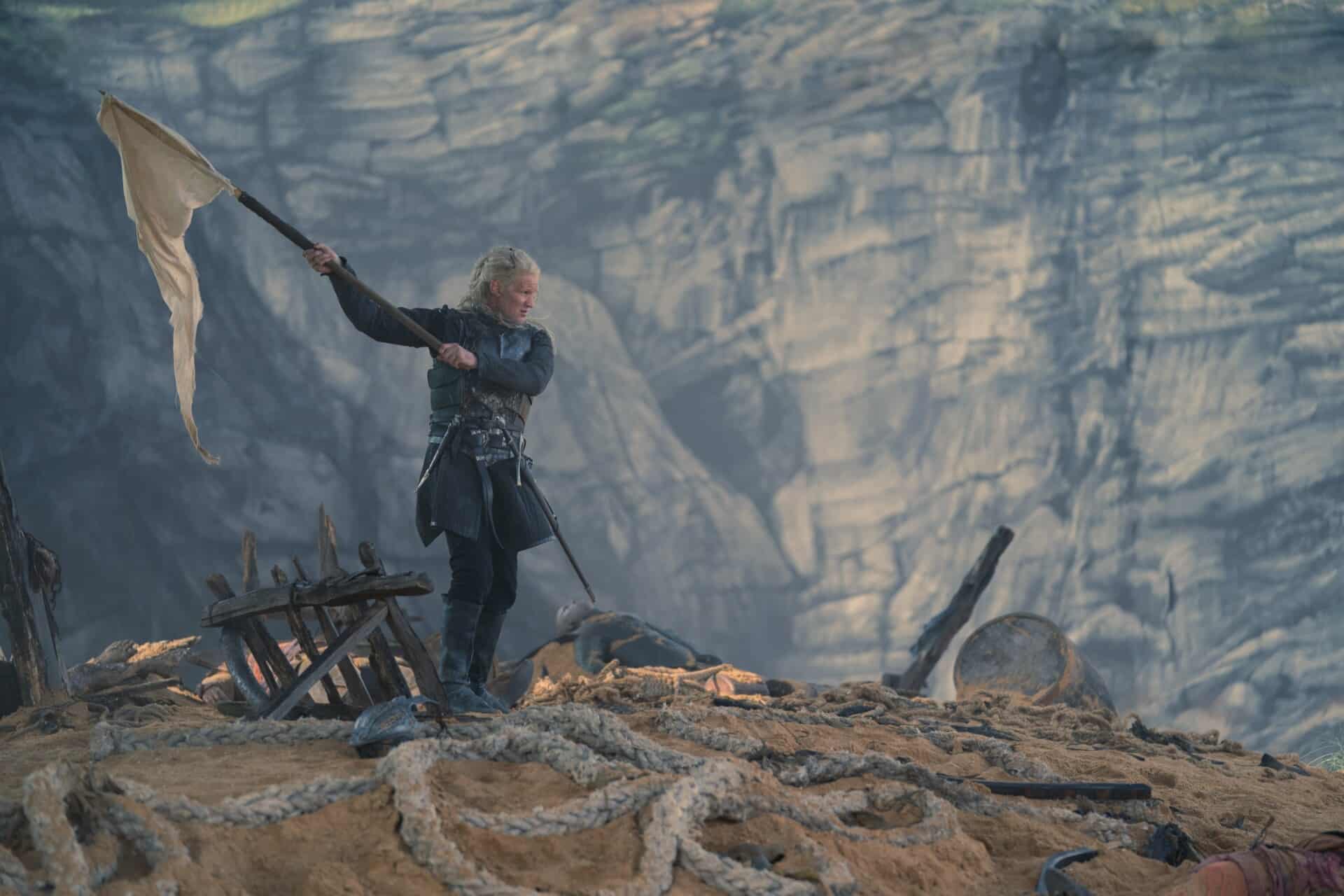
Author George R.R. Martin has been openly critical to present Daenerys’ wedding night as a sexual assault, stating that he preferred the version of the scene in the infamously unaired pilot, in which the scene of a fully grown man bedding a teenager was framed as “a consensual seduction scene.” Momoa has been asked about the scene and explained that it was important in establishing the dynamic to the audience, “it’s not a nice thing, and it’s what that character was.”
The production team working on House of the Dragon has made it clear that the show will not employ sexual assault in the same way that Game of Thrones did. This is understandable. Although Game of Thrones ended only a few years ago, this is a different climate. Audiences and writers are more cognizant of how such things are portrayed in media and more careful about how such sequences are filmed and presented. All things considered, this is probably for the best.
However, these changes have a weird knock-on effect. Because the basic structure of the story demands that Viserys exile Daemon from King’s Landing, “King of the Narrow Sea” turns Daemon into a man whose life is upended by a false allegation of sexual impropriety. Given that Daemon was introduced in “The Heirs of the Dragon” instituting a reign of terror in King’s Landing, it is an interesting choice that the episode never quite reconciles. Daemon somehow becomes the victim in all of this.
Ultimately, Rhaenyra sleeps with her father’s bodyguard, Ser Criston Cole (Fabien Frankel). It is a sequence framed as a seduction and shot as a love scene. It is even presented as empowering for Rhaenyra, as she controls the foreplay. It is very pointedly contrasted with the more mechanical and uncomfortable sex taking place between Viserys and his wife Alicent Hightower (Emily Carey). It is meant to be a fantasy sequence. The audience is put at ease.
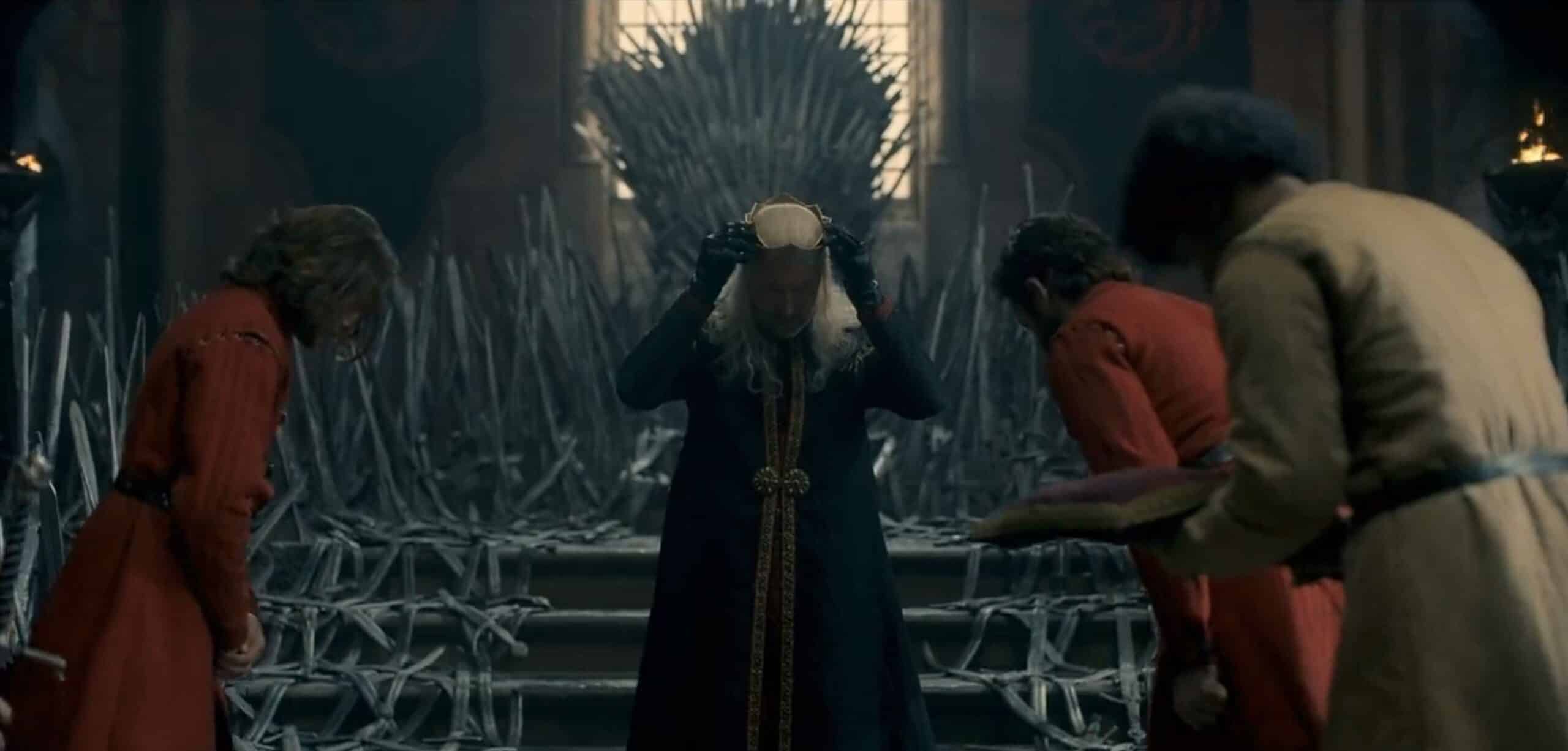
However, there is something unsettling simmering beneath all this. Rhaenyra is still just as much a child as Alicent and Daenerys. To underscore this, House of the Dragon will be recasting the roles of Rhaenyra and Alicent later in the season, replacing Milly Alcock with Emma D’Arcy and Emily Carey with Olivia Cooke. In contrast, Smith and Frankel are not being recast, affirming their characters as mature adults. It is perhaps a different sort of sexual violence, one the episode doesn’t confront.
House of the Dragon is a lot more clear-cut in how it chooses to articulate its sexual politics. Viserys’ absurd double standard when it comes to his daughter’s sexual adventures is explicitly called out by Daemon, rather than allowed to stand on its own. Indeed, Viserys’ views almost seem the exception rather than the rule. His brother Daemon is surprisingly willing to listen to Rhaenyra’s complaints about how women — even women from royalty — are mistreated in Westeros.
“Marriage is only a political arrangement,” Daemon reassures his niece. “Once you are wed, you can do as you like.” Rhaenyra replies, “For men, marriage might be a political arrangement. For women, it is like a death sentence.” Daemon is prompted by this insight to smuggle Rhaenyra out of the Red Keep and into the city, as if she is Henry V (Kenneth Branagh) or Princess Jasmine (Linda Larkin). He takes her to a brothel, explaining, “Fucking is a pleasure, you see. For the woman, as it is the man.”
However, Rhaenyra repeatedly brushes up against the reality that her existence is (comparatively) privileged and that striving for her own advantage does little to help others. “Tis rare for girls in this realm to get a choice between two suitors, let alone two score of them,” Alicent tells Rhaenyra. “I think it’s rather romantic.” Rhaenyra sighs, “How romantic it must be to get imprisoned in a castle and need to squeeze out heirs.” She then realizes that she has described Alicent’s exact situation.
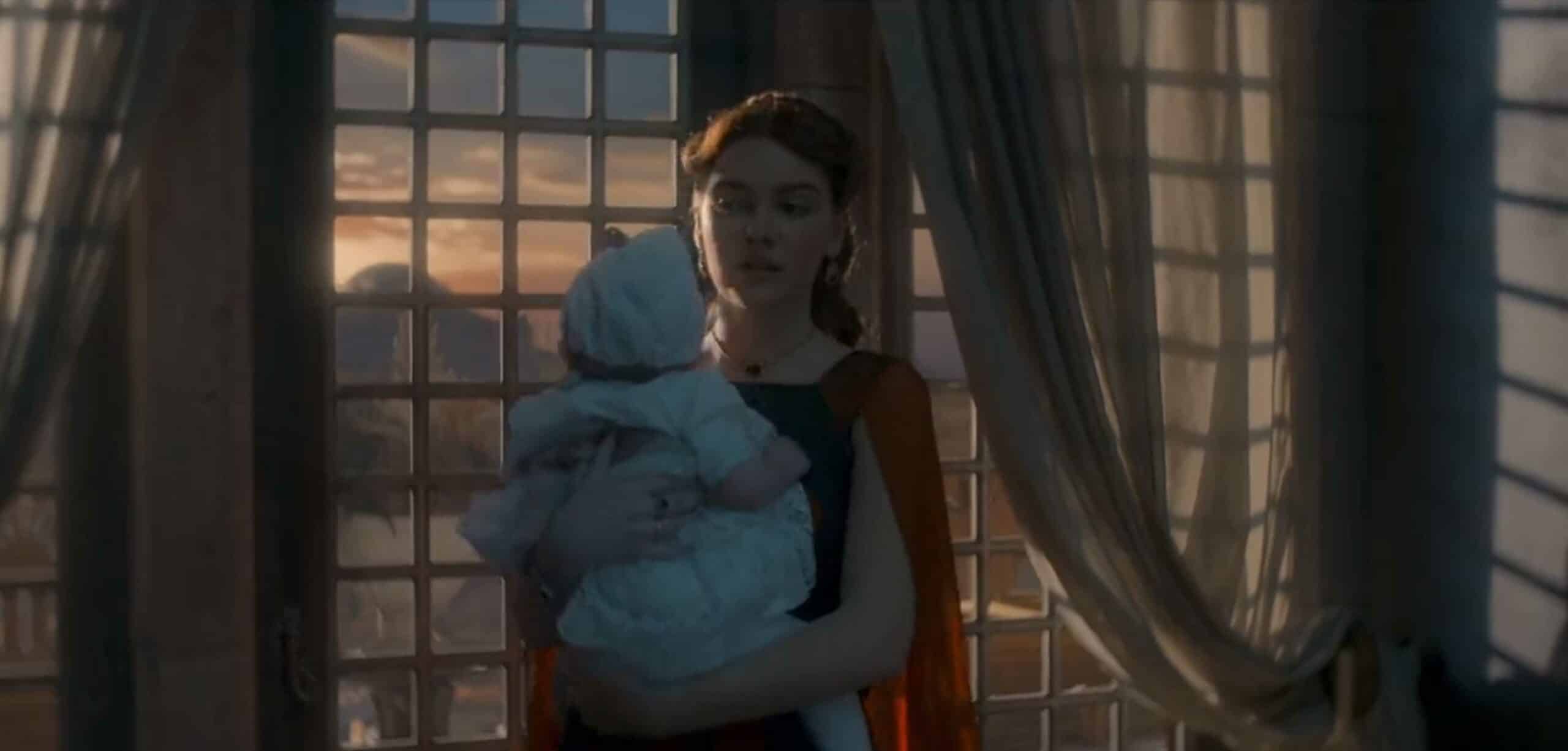
Alicent was basically maneuvered by her father (Rhys Ifans) into Viserys’ marital bed. She had no real choice in the matter. She certainly never enjoyed that (relative) latitude that Viserys has afforded Rhaenyra to pick a match on her own terms and her own schedule. Rhaenyra has a hard life, but she is also blind to the suffering of others, including her best friend. The simmering resentment that Alicent has towards Rhaenyra has at least some justification.
Showrunner Miguel Sapochnik has framed House of the Dragon as a show about the conflict between the two women, asking, “What if Alicent is like ‘Women for Trump,’ and Rhaenyra’s like punk rock?” Even ignoring how that description feels very reductive and binary, it also ignores the reality that Rhaenyra and Alicent have both suffered due to systemic misogyny. Game of Thrones understood that these sorts of competitions were often false binaries, that the system itself was fundamentally broken and that it made little real difference who held power in such a structure.
To be fair, the cast seem to realize this. Emma D’Arcy has argued that the show is really about how “the patriarchal structure that [Rhaenyra and Alicent] live within is seeking to drive a wedge between them.” Olivia Cooke contends that the series is built “around two women who are pitted against each other partly because they are actually stronger together.” That is a much more compelling way of framing Sapochnik’s argument.
It also means House of the Dragon has to grapple with both the system and the place that Rhaenyra and Alicent occupy within it. Is Rhaenyra really a hero if her only priority is to place herself atop of a power structure that victimizes women like Alicent? House of the Dragon has a much tighter focus than Game of Thrones did, but that means that the show has no real sense of the world outside Rhaenyra’s bubble. There is no sense of what she will do with the throne, only that she wants it.
One of the great ironies of House of the Dragon is that it is adapted from a book, Fire & Blood, that revels in ambiguity and leans heavily on the concept of unreliable narrators. In contrast, House of the Dragon is much clearer in its perspective. The question remains whether it will be able to see past Rhaenyra.

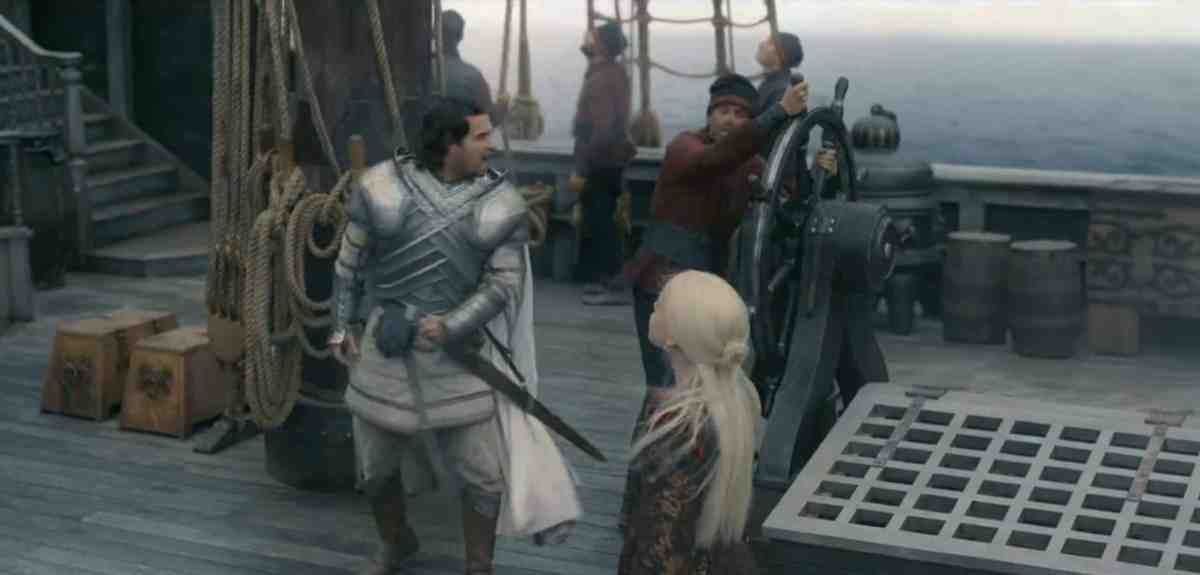




Published: Sep 11, 2022 10:00 pm